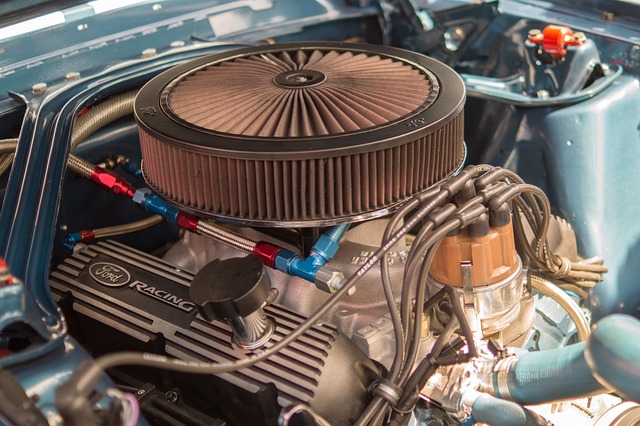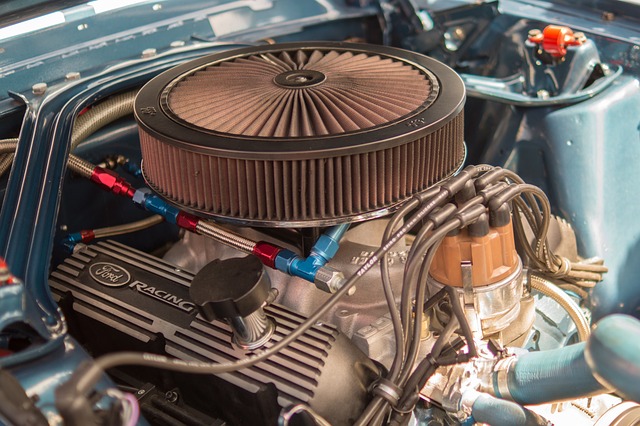The Department of Motor Vehicles (DMV) has undergone a significant transformation into a digital service provider, revolutionizing vehicle registration and driver's license renewal processes. This shift has eliminated the need for physical visits, reducing wait times and enhancing customer satisfaction through online platforms that offer step-by-step guidance, real-time updates, and transparent fee calculations. The modernization of DMV services includes secure online document submission, payment, and tracking of applications, with immediate confirmation and responsive customer support. The regulatory framework has been updated for efficiency, incorporating cybersecurity measures to ensure data protection. This has led to a more streamlined, accessible, and expedited process for car registration fee calculations, including tailored information based on vehicle type, weight, and region, with incentives like reduced fees for electric vehicles. Overall, these advancements have made state vehicle services more user-friendly and customer-centric, marking a notable progression in government service delivery.
Navigating state vehicle services has been revolutionized by the advent of online platforms and updated regulations, streamlining tasks from vehicle registration to driver’s license renewal. The Department of Motor Vehicles’ recent digital initiatives aim to expedite processes, curtail wait times, and enhance customer satisfaction. This article explores the transformative impact of these changes, offering clarity on utilizing online vehicle registration services, understanding car registration fee calculations, and embracing the new DMV experience that prioritizes efficiency and convenience. Join us as we delve into how these advancements are reshaping vehicle management across the states.
- Digital DMV Services Simplify Vehicle Registration
- Streamlined Online Platforms for Driver’s License Renewal
- Up-to-Date Regulations on State Vehicle Services
- Guide to Calculating Car Registration Fees
- Reduced Wait Times: The Impact of Digital Transformation
- Customer Satisfaction and the Modern DMV Experience
Digital DMV Services Simplify Vehicle Registration

The advent of digital services at state vehicle departments, often referred to as Departments of Motor Vehicles (DMV), has revolutionized the way individuals interact with vehicle registration processes. Gone are the days of lengthy queues and paper-heavy procedures; now, motorists can complete many tasks from the comfort of their homes or offices. These online platforms enable users to initiate, complete, and finalize vehicle registration applications with a few clicks. The process is not only convenient but also user-friendly, as applicants are guided through each step with clear instructions and real-time updates on the status of their application. This digital transformation has significantly reduced wait times and improved overall customer satisfaction. Additionally, these online services often provide tools to calculate car registration fees, ensuring that users are fully informed about the costs before proceeding. The DMV’s commitment to modernization is evident in the seamless integration of these digital solutions, making vehicle registration a straightforward and efficient experience for all drivers. With the convenience of digital access, coupled with the transparency provided by these online services, the process of registering a vehicle has become more accessible than ever before.
Streamlined Online Platforms for Driver’s License Renewal

The advent of online platforms has revolutionized the process of driver’s license renewal, offering a seamless and efficient experience for individuals seeking to update their credentials. These digital services enable applicants to complete the renewal process from the comfort of their homes or on-the-go, eliminating the need for lengthy visits to local offices. The Department of Motor Vehicles (DMV) has taken significant strides in modernizing its systems, allowing users to submit necessary documentation and pay applicable fees through secure online interfaces. This transition to digital has not only streamlined the process but also significantly reduced the common bottlenecks experienced at physical DMV locations, such as long queues and manual processing delays. Applicants can now track their renewal status in real-time, receive instant confirmations, and access customer support through chat or phone without leaving their current location. As a result, the overall experience of renewing a driver’s license has become more user-friendly, accessible, and less time-consuming, marking a notable improvement in public service delivery within the state vehicle services domain.
Up-to-Date Regulations on State Vehicle Services

The regulatory landscape governing state vehicle services has undergone significant transformations, with a clear trend towards modernization and digitization. These updates are designed to enhance efficiency, security, and accessibility for motorists. The Department of Motor Vehicles (DMV) across various states has been instrumental in this shift, implementing new protocols that align with national standards while accommodating state-specific requirements. For instance, many states now offer online platforms where individuals can complete vehicle registrations, renew driver’s licenses, and even pay associated fees without the need for physical visits to DMV offices. These platforms not only streamline the process but also provide real-time updates on regulatory changes, ensuring that users are always informed of the current requirements. The updated regulations also prioritize data protection and user privacy, incorporating robust cybersecurity measures to safeguard personal information shared during transactions. As a result, motorists can navigate state vehicle services with greater ease and confidence, knowing that they are adhering to the most recent and up-to-date regulations.
Guide to Calculating Car Registration Fees

Calculating car registration fees can be a straightforward process, thanks to the comprehensive guides and tools provided by state vehicle services. These online platforms typically offer a detailed fee structure that accounts for various factors such as the type of vehicle, its weight, and the region in which it is registered. The process often begins with selecting your state from an interactive map or list, ensuring that you are presented with the accurate fees applicable to your area. Additionally, certain vehicles may be subject to additional fees based on their classification, environmental impact, or special equipment. For instance, electric vehicles might benefit from reduced registration fees in many jurisdictions as part of incentives for eco-friendly transportation options. To facilitate a seamless experience, these platforms often include a step-by-step calculator that takes into account all relevant criteria and provides a total fee for your registration. This not only saves time but also eliminates the potential for human error in fee calculation, which previously might have led to unexpected costs or delays at the registration office. By utilizing these online tools, vehicle owners can complete their registration process with greater ease and confidence, knowing that they are prepared with all necessary financial information before visiting a local DMV branch or submitting their application online.
Reduced Wait Times: The Impact of Digital Transformation

The digital transformation of state vehicle services has significantly reduced wait times for individuals seeking to register their vehicles or renew their driver’s licenses. This shift towards online platforms and automated systems has streamlined processes that were once cumbersome and time-consuming. Previously, applicants might have faced lengthy queues at physical offices, but now, with just a few clicks, they can navigate to the appropriate digital service provided by their state’s Department of Motor Vehicles (DMV). These online services not only save time for users but also for the staff who previously had to manage paper-based transactions and in-person visits. The efficiency gains from these digital solutions have led to a notable decrease in wait times, making the process of vehicle registration and driver’s license renewal more accessible and less of an inconvenience.
The impact of this digital transformation extends beyond just reducing wait times. It has also enhanced the overall customer experience by offering convenience, accuracy, and real-time updates. The updated regulations that accompany these technological advancements ensure that security measures are in place to protect sensitive personal information. As a result, the integrity of the services is maintained while still providing the public with quicker access to essential vehicle-related transactions. This evolution in state vehicle services exemplifies the broader trend towards digitalization in government services, marking a significant step forward in improving public interaction with official entities.
Customer Satisfaction and the Modern DMV Experience

The modern experience at the Department of Motor Vehicles (DMV) has undergone a significant transformation, with customer satisfaction now at the forefront of service delivery. Advancements in online platforms have enabled individuals to complete many tasks previously requiring an in-person visit, such as vehicle registration renewals and driver’s license applications. These digital solutions not only streamline processes but also offer convenience and time savings. The DMV has embraced this shift by updating its regulations and adopting user-friendly interfaces that make navigating their services more intuitive. As a result, customers are experiencing shorter wait times and more efficient transactions, leading to improved overall satisfaction. The ease of use and accessibility of these online services have democratized the DMV experience, making it more accessible to a broader population, including those with disabilities or those living in remote areas. The feedback from users has been overwhelmingly positive, indicating that the DMV’s efforts to modernize are successfully meeting the needs of the public and setting a new standard for governmental services.
navigating state vehicle services has seen significant improvements, largely due to advancements in online platforms and updated regulations. Users can now efficiently handle vehicle registration and driver’s license renewal processes with ease. The Department of Motor Vehicles’ commitment to digitization reflects a clear goal: to enhance user experience by minimizing wait times and boosting overall satisfaction. With comprehensive insights on calculating car registration fees and the latest updates, individuals are well-equipped to navigate these services confidently. The modern DMV experience is a testament to the effective integration of technology in public services, making administrative tasks less daunting and more accessible for all citizens.



